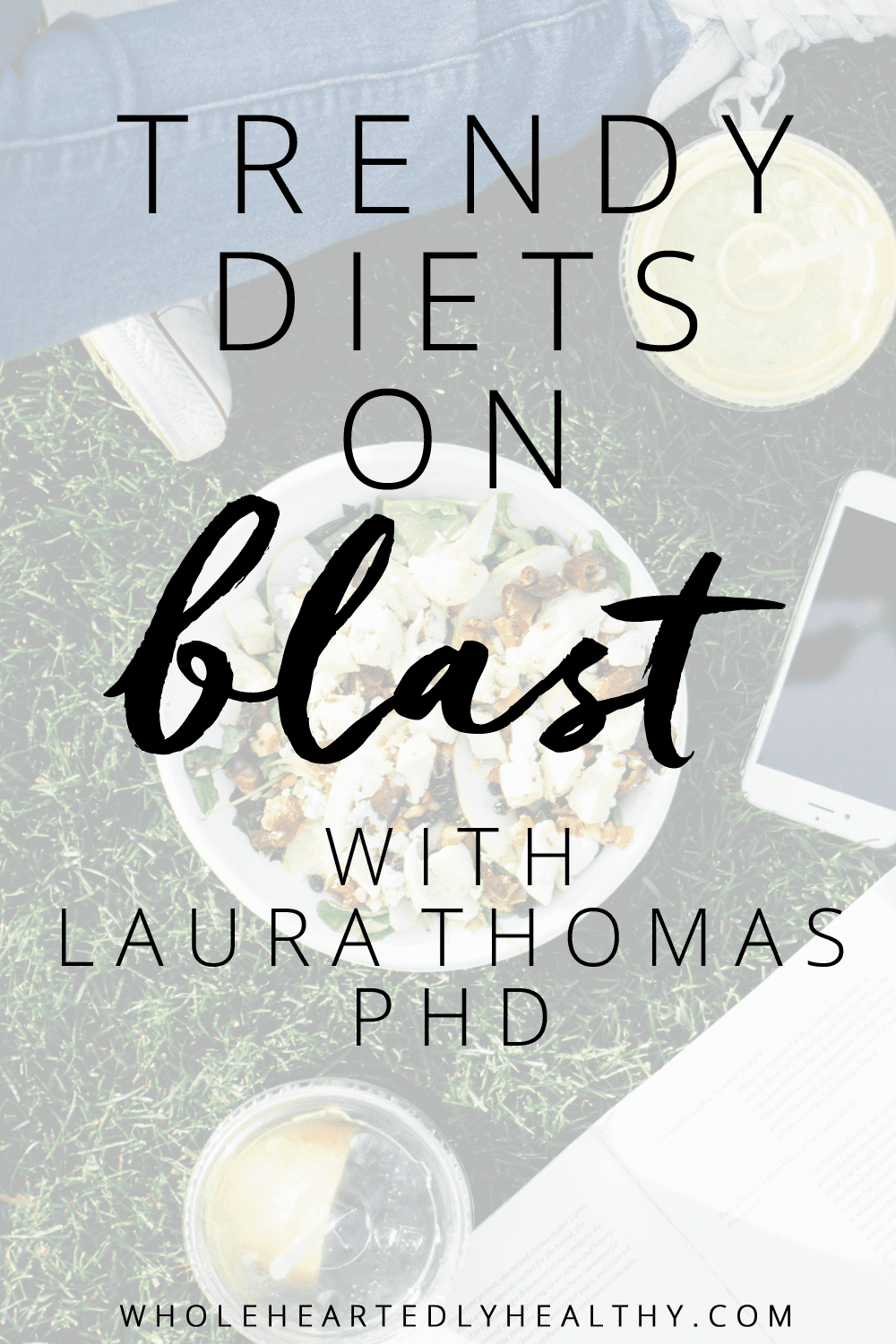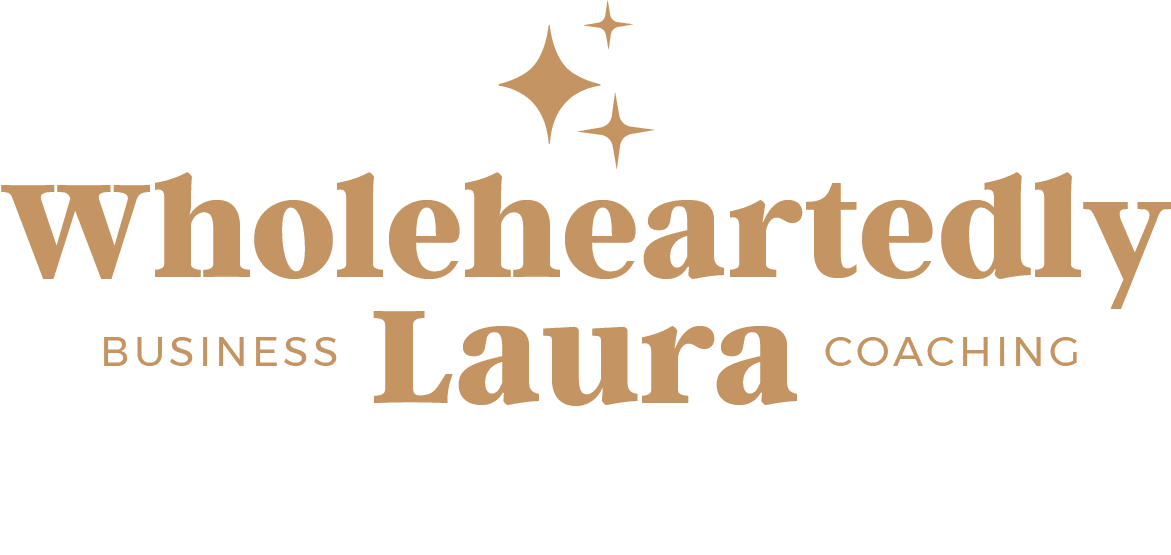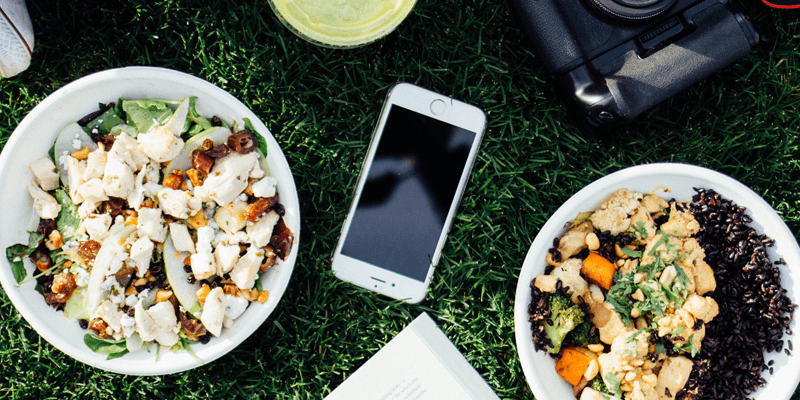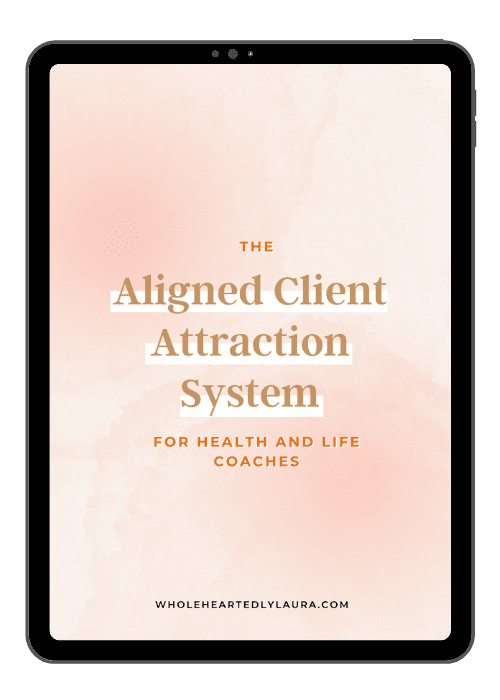

Hey everyone! Today I’d like to share a really insightful post with you from my good friend Laura Thomas Phd. With a PhD in Nutritional Science she knows her stuff, and like me she’s totally no B*S which I LOVE. She’s also going to be one of the first guest experts in The Balance Club which is super exciting! Now I’m going to hand over to Laura who’s going to debunk some of todays most trendy diets….
Hey friends! Some of you may know me already from my writing for the HuffPo or because of my new podcast – Don’t Salt My Game – of which Laura was recently a cool guest. But for those of you who don’t know me yet – I’m also Laura, a registered nutritionist and wellness advocate. I have a PhD in nutritional sciences and my MO is to shut down any whack nutrition & diet shit that doesn’t have any scientific merit or evidence behind it. Like Laura, I’m a big fan of finding your balance – having a super healthy diet is great, but if that’s at the expense of your mental health, then that’s not cool either.
In my nutrition practice I hear from a lot of women who say they follow the diets of top wellness bloggers and eat straight out of their cookbooks. They’ve been promised they’ll feel ‘amazing’ and ‘glow’. But spoiler, they don’t. And they either beat themselves up for it or end up coming to see me instead.
I can see how you’d get sucked into it – the people behind the books and blogs are really pretty; they always look so… shiny, and happy. But they also have great PR teams and pay a lot of money to keep their image polished. At the end of the day, they’re trying to sell something to us – a diet, a lifestyle. There’s no science behind it. It’s all fake.
So even when we follow the plans down to the letter we might still feel shitty. This perpetuates a cycle of negative thinking – that we’re a ‘failure’ or not good enough – we end up giving in altogether. But these diets are rarely based on any kind of legit science – there are no studies with thousands and thousands of people backing them up. They may have worked for that individual – they may even work for your friend. Doesn’t mean they’ll work for you, and what’s more worrying is, they might actually be kinda bad for you.
I’ve picked out a few of the big trendy diets, and I’m calling out what I see as some of the main issues with them.
Just a word on weight loss – the ratio of macronutrients doesn’t really matter when it comes to losing weight – it’s the total number of calories that counts. High protein, high fat, and high carbs diets have all been shown to cause speedy weight loss. The thing all these diets had in common was that people were cutting calories (through diet and extra exercise). Over the long term none of them have shown to be more sustainable than the others. There was even a famous ‘study’ where a university nutrition lecturer ate nothing but McDonald’s every day – but he kept his calorie intake lower than his requirement. And… you guessed it, he lost a butt load of weight. Not that I’m condoning that. In fact, definitely DON’T do that. My point is that you can cut calories and lose weight – but it doesn’t always mean it’s healthy.
High Fat Diets
HFDs are like ‘so cool’ right now, but as far as I’m concerned there’s no compelling or meaningful science behind this. What worries me about HFDs are the long term consequences. Most cardiologists will agree that a diet high in fat, particularly saturated fats from animal products and processed foods, will cause a spike in your ‘bad’ cholesterol which is a risk factor for heart disease. Yes there are ‘good’ and ‘bad’ fats – but you can have too much of a good thing – even ‘healthy’ fats. Plus there’s some evidence to suggest that high fat diets may negatively alter our gut microbiome. I have a lot of clients who come to me asking for help with weight loss – a lot of them have diets that are more than 50% of calories from fat (the recommendation is no more than 30%), and they’re having a hard time shifting weight on this diet, as well as generally feeling like crap. Just sayin’.
Other Laura to add: remember there’s no need to fear the fat though! It’s balance that’s the key.
High protein diets like Paleo
Just like high fat diets, high protein diets may help with short-term weight loss, again through calorie restriction. Again, the problem with high protein diets is that we don’t fully understand the long-term consequences, but it is thought that they could be detrimental to kidney health, and more and more evidence is accumulating suggesting that diets high in animal proteins are linked to worse health outcomes. And don’t get me started on fibre. There’s basically no fibre on this diet. Even in the Palaeolithic era our ancestors got around 100g PER DAY. Think about your microbiome you guys. If you want to read more about my thoughts on high protein diets and getting enough protein check out these articles that go into a bit more detail.
Intermittent fasting/ the 5:2 diet
There is some evidence to suggest that time-restricted feeding (i.e. eating within a discreet window, usually 12 hours) can have a beneficial effect on markers of health like cholesterol and insulin sensitivity. However, my big concern here is that severely restricting the amount you eat one day, and then excessive (or even ‘normal’) eating the next day is a bit of a disordered eating pattern and may be triggering to people with histories of eating disorders, or those who may be at risk. Think about it, maybe you ‘fast’ one or two days a week, maybe it creeps up to three or four – there’s a very fine line between the 5:2 diet and an eating disorder.
Plant-based/vegan diets
Full disclosure – I follow a plant-based diet. The evidence suggests that we could all benefit from more plants in our diet; what kind of nutritionist would I be if I didn’t tell you to eat more fruit and veg? The problem is when plant-based diets are not well balanced. Usually one of two things happens: 1) people don’t eat enough food and don’t get enough calories and nutrients (you can’t exist on salad alone) or 2) people go too far the other way and eat more of a ‘junk food vegan’ diet. I used to be a junk food vegan – I gained a bunch of weight and felt like crap. Now I eat mostly whole food plant-based, there’s lots of variety, and lots of space for treats – mine just happen to be vegan. There’s some strong evidence that including more plants is probably a good idea.
So what does a balanced diet look like? Well that really depends on you, your schedule, your lifestyle, the foods you like and dislike, how much you move throughout the day, so many things. But there are two really important take-aways I’d like to leave you with:
1) Eat all the plants. I’m not saying you should go 100% plant-based, but there’s always room for more plants. It’s not an all or nothing thing, you can include some eggs or cheese if that’s what works for you (just be conscious of slipping into that high fat zone). Plants are a great source of phytonutrients that can help protect against disease, provide lots of fibre (seriously we all need more fibre), and provide a good dose of vitamins and minerals (I mean, duh, you already know that part). Eat a variety of plants too. Whole grains, BEANS (beans are the greatest, everyone should eat more beans), nuts and seeds (although don’t go cray), fruits, and vegetables.
2) Make breakfast the biggest meal of the day (or b’fast plus some snacks), eat lighter at lunch and dinner. Don’t be afraid of healthy snacks if you’re still feeling peckish (but be mindful if you’re actually hungry or just bored – try the apple test, are you hungry enough to eat an apple?) So much cool research is coming out about how when we eat is almost as important as what we eat – a concept called chrononutrition. Basically if we skip breakfast and eat meals later in the day it can cause problems for our metabolism, sleep, and overall health, and increases the likelihood of us gaining weight or becoming obese. You can read more about chrononutrition here.
For more science-based nutrition, no BS wellness, lifestyle and inspiration – subscribe to my newsletter here or listen to my conversations with game changers on my podcast Don’t Salt My Game.
Laura Thomas is an AFN Registered Nutritionist and Wellness advocate based in London. She got her BSc (hons) from the University of Aberdeen where she studied Health Sciences with a concentration in Nutrition. She then went on to get her PhD at Texas A&M University in the US where she became fascinated with the microbiome (the healthy bacteria that live in our gut). After her PhD she moved to upstate New York to complete her postdoctoral work at Cornell University – there she developed an interest in people’s behaviours around food and nutrition. Now a recovering academic – she writes an evidence based nutrition blog for the Huffington Post and hosts the no BS podcast Don’t Salt My Game. She also helps her clients meet their health and wellness goals by using the most up to date science available.
P.S: The Balance Club is coming very soon, sign up for the VIP list to be the first to know when it opens!



Really loved this article and agree with everything said here. I am studying nutrition at the moment (in Australia but I am from the UK!) and I see how popular high fat and high protein diets are over here with consumers and the long term affect of this does worry me. Some of our lecturers were saying how dangerous it could be for long term health, like you said, e.g for our kidneys.
After exploring different things, I am mostly plant based too. The scientific evidence combined with the environmental effects and making me feel well are what has me plant based. Although with mental freedom too and no “perfection” :)
Anyway, I am writing an article myself here…really loved this article and super happy to have come across an awesome UK nutritionist talking sense! Thanks for sharing Laura and Laura :)
Thanks Lauren! Good luck with your studies – do you plan to practice back in the UK? Although why would you leave Oz??
Thanks Laura! Yes I am definitely planning on practicing in the UK, but I am not sure when we will be back for sure! I am torn between two amazing countries ;)
Great post! I think any diet that says something like “cut out this entire food group or food” is a no no. I’d even go so far to say even if they’re suggesting junk food. In our society cutting out junk food and never eating it again is just impossible. Social situations become difficult and life becomes harder as you constantly have to navigate and avoid certain situations. Junk food once in a while is fine I think – it’s just balance and moderation. Personally I’m in the camp of “eat what makes you feel good”, usually your body is quite savvy at telling you what that is!
YES to this, completely agree Anna, I think we have to be realistic alongside everything else and to get overly freaked out by junk food, to me, can be just as unhealthy
A great post, thanks. There is so much rubbish out there, but at the end of the day, restrictive diets work for a bit because they cut calories via cutting out whole food groups but they are not sustainable in the long term. I especially agree with the paleo bit- I like the Science Vs podcast (they look at the facts for and against an issue each week) and totally rubbished the whole concept. We were talking about it at work the other day, as people were saying we should be eating mainly meat because we would have been hunting big animals- I actually got so annoyed that I joined in with the conversation!
I’ll have to check out that podcast! Blimey I bet you were annoyed, rightly so!